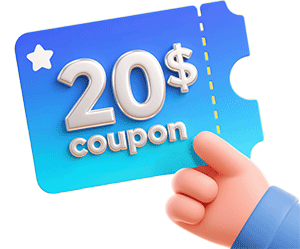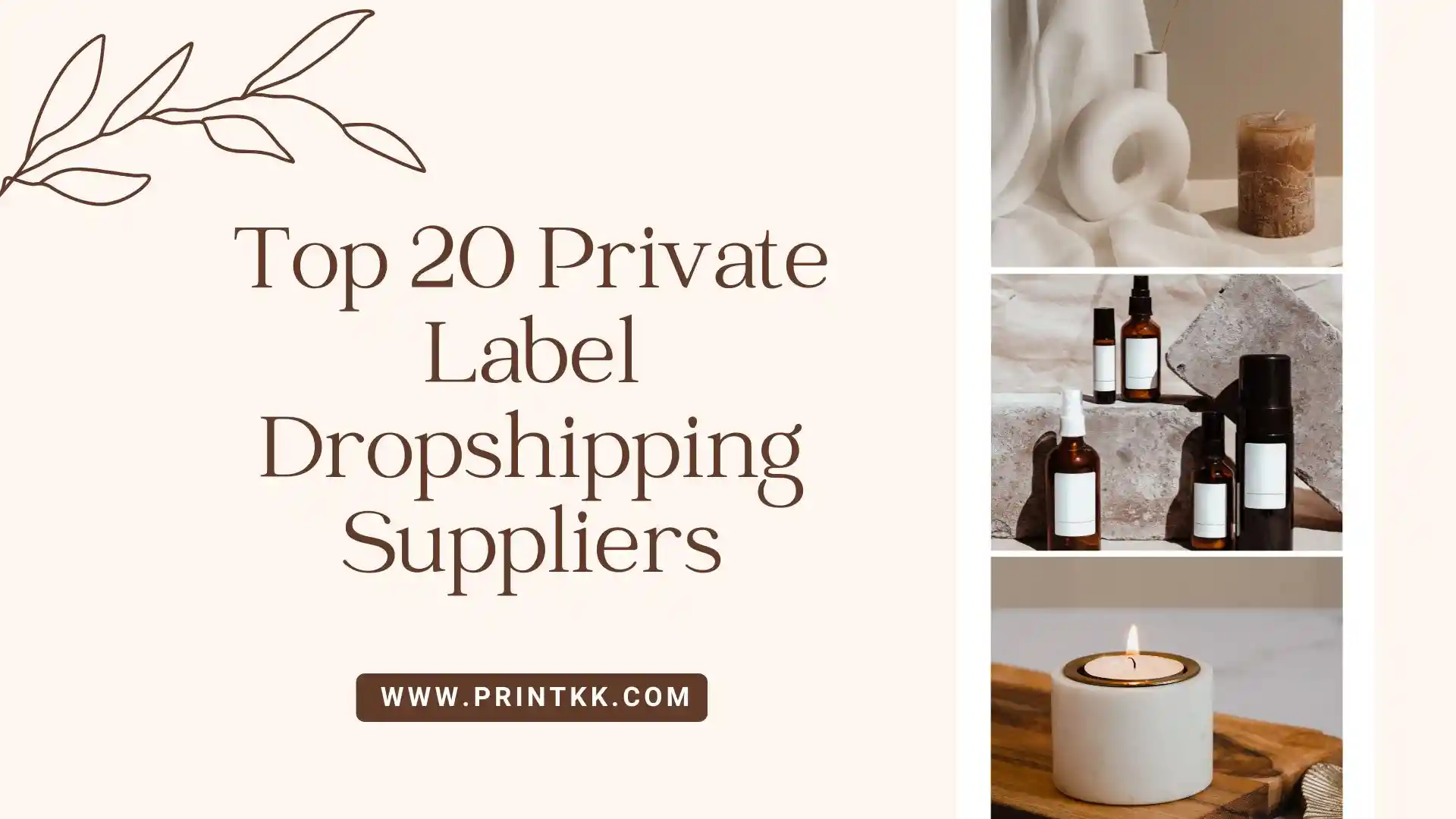
Entrepreneurs and small business owners always look for the business model that will not only reduce inventory risk, but also leverage their own branding rapidly. Private label dropshipping is the way to go.
Working with trusted suppliers is what enables you to sell quality products and stand out from the competition in your own special way.
In this piece, we've assembled the 20 best reliable private label dropshipping suppliers for 2025 to help give your business that extra push in terms of expansion and profits next year.
What is White Label Dropshipping?
White label dropshipping lets you sell products under your own brand without making them yourself. The supplier handles production, storage, and shipping.
When someone orders from your store, the item is sent directly to the customer. This lets you focus on marketing, branding, and customer experience.
Some industries are more popular for white labeling. For example, in the beauty and cosmetics sector alone, the global private label market is expected to grow at a CAGR of 5.2% from 2025 to 2030. By 2030, this market could reach $14.4 billion.
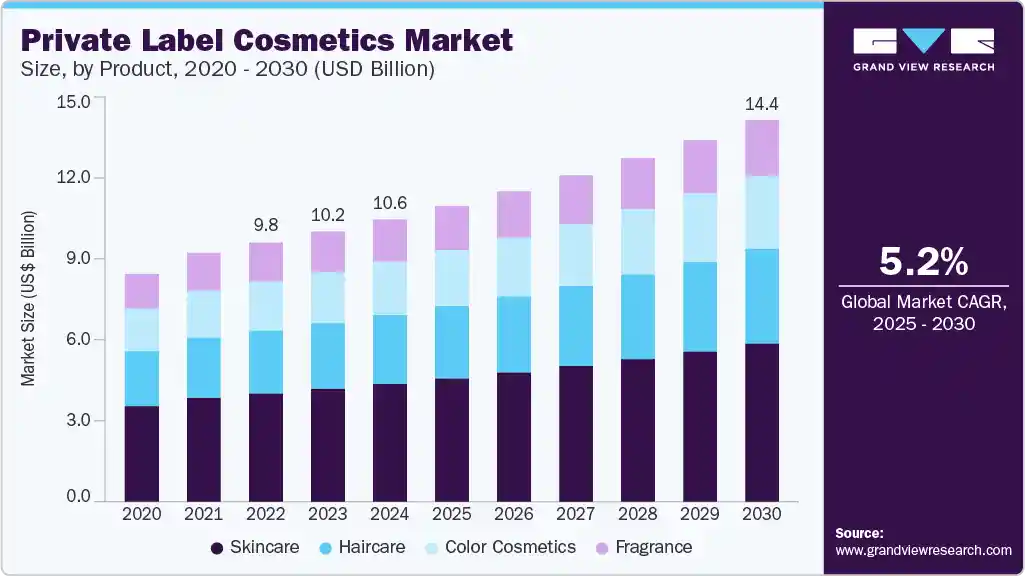
This shows that even within a specific niche, there's strong demand for ready-to-sell branded products.
Key points to keep in mind:
- You don't hold inventory or manage manufacturing.
- Products arrive with your brand on the packaging.
- You control pricing and marketing.
- Start small, test products, and scale gradually.
Choosing the right supplier is crucial. Make sure they offer:
- Consistent product quality
- Reliable shipping
- Custom packaging and labeling
White label dropshipping allows you to enter competitive markets with low upfront costs. It's a practical way to grow a brand while keeping control over customer experience.
Top 20 Private Label Dropshipping Suppliers
Dripshipper
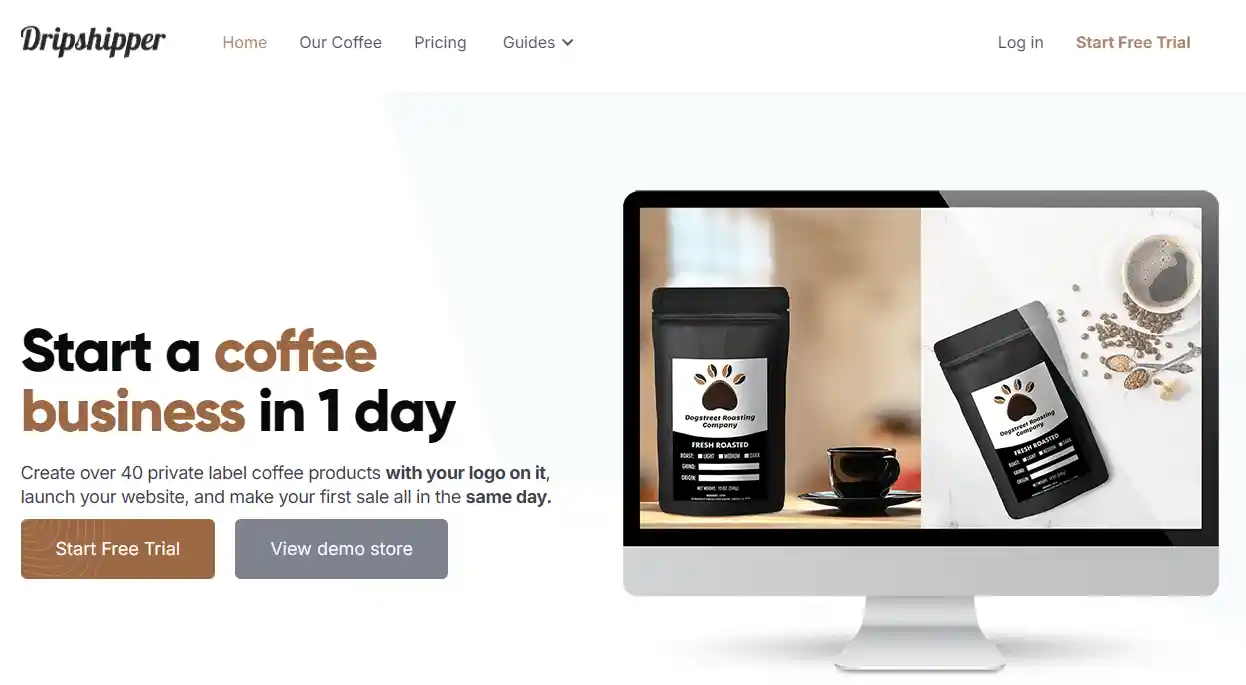
Dripshipper is a US private label dropshipping service that specializes in distributing coffee related items.
They enable you to sell coffee under your own label without maintaining stock. They take care of the roasting, packaging and shipping for you. You can select from light roast to espresso blends.
Features:
- You have the ability to brand labels and packaging.
- They deliver directly to customers in the US.
- Great integration with Shopify and other stores.
Bakell
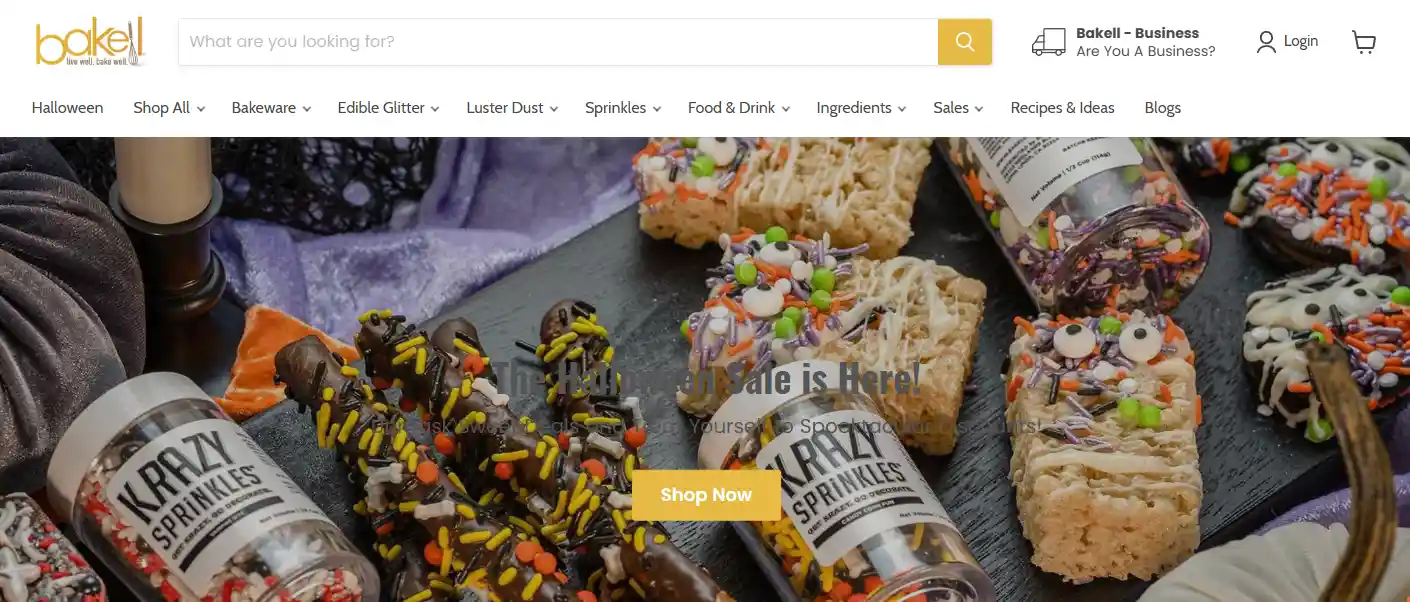
Bakell offers private label services for cake mixes, frostings and baking kits. Their products are designed for home bakers and small bakeries.
They also provide seasonal items and ready-to-cook kits that can help you build your brand.
Features:
- Label and branded packaging capability.
- Convenient access to ready-made dessert items.
- Quick shipping to your business.
PrintKK
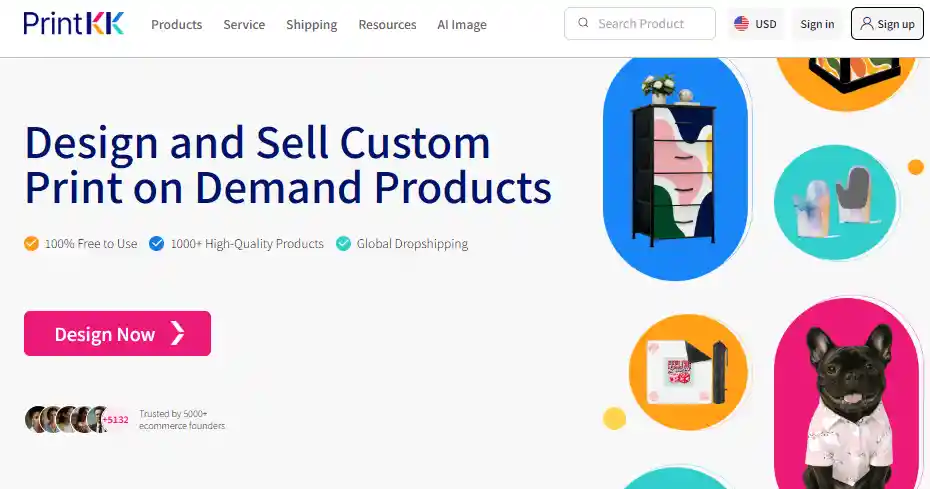
PrintKK offers you private label printing of clothes and accessories. You can sell garments, hats, and bags under your own label.
They even have AI-based image tools to help improve the look of your branded products. PrintKK is fully compatible with all features of most popular e-commerce platforms such as Shopify for listing and purchases.
Features:
- Customize designs on products.
- No inventory required on your end.
- Direct shipping to customers worldwide.
- The product price is very competitive.
Pravada Private Label
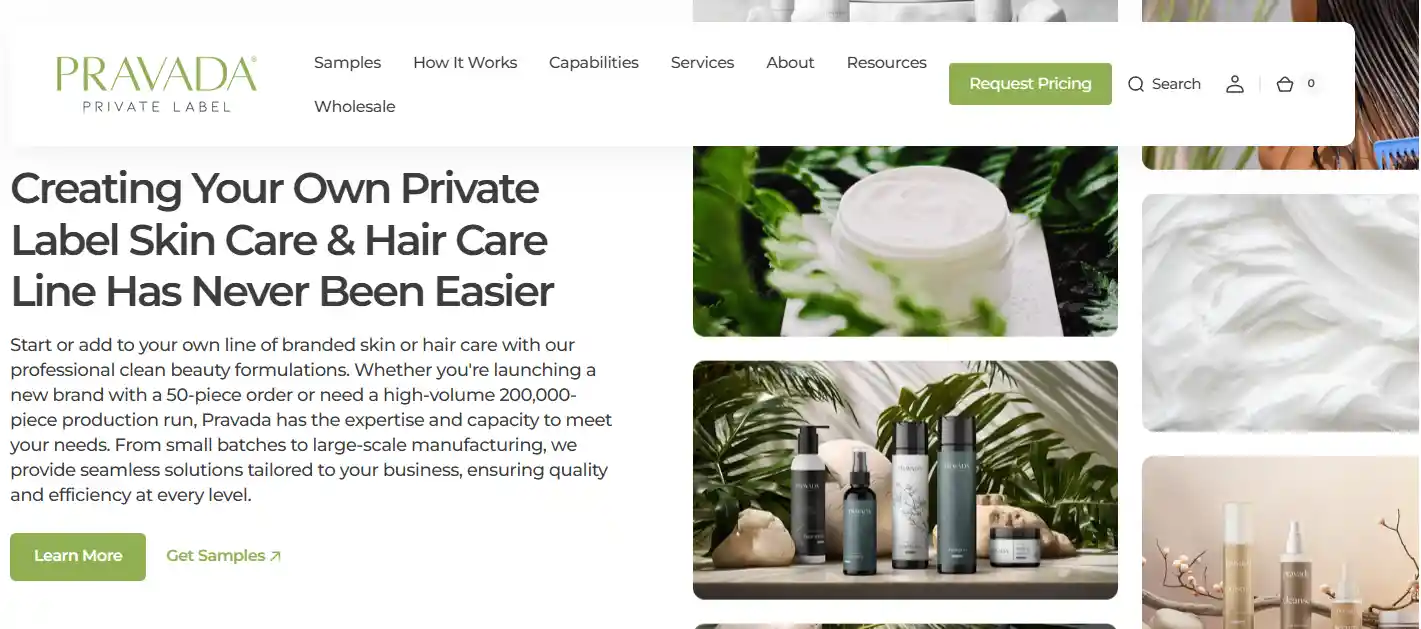
Pravada Private Label is a beauty and personal care vendor. They offer skincare and cosmetics to market online as you choose.
They primarily serve startups and small brands. They can also provide formulation counsel to help you create products that match your brand identity.
Features:
- Custom formulas for your brand.
- Full packaging customization.
- Private label dropshipping support.
Rumble Coffee Roasters
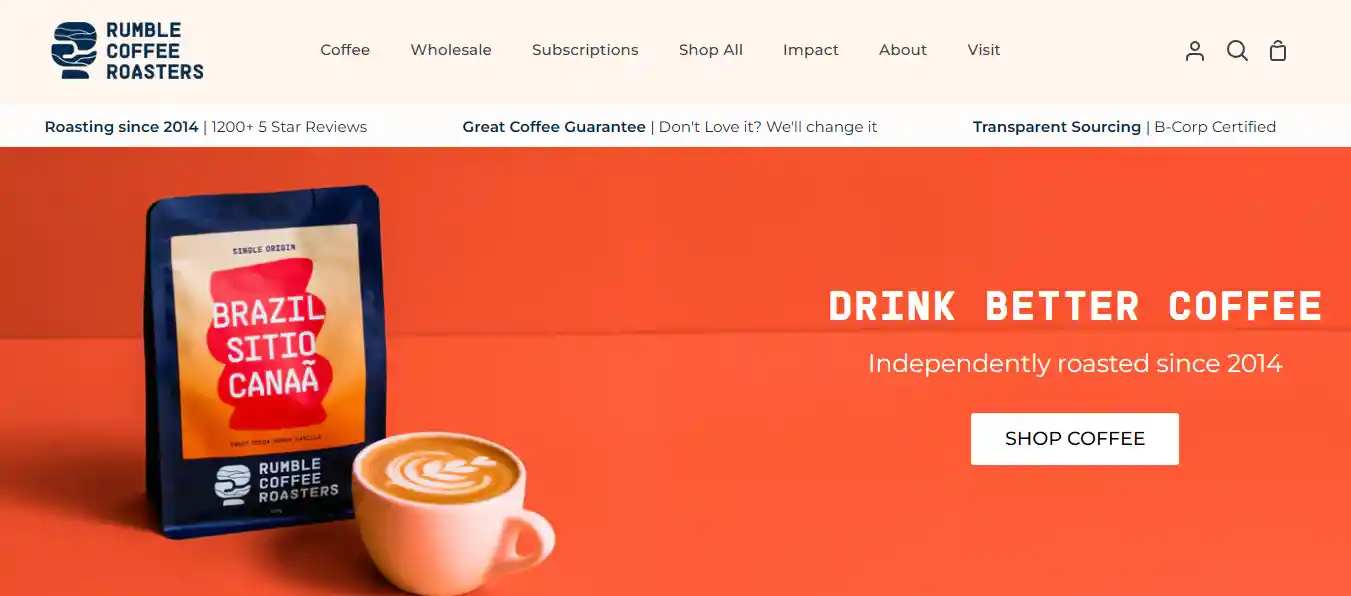
Rumble Coffee Roasters is a quality-focused boutique coffee roaster located in Australia, specializing in private label and contract roasting.
They cater to businesses who want to craft their own specialty coffee brand.
Features:
- Your blend, distinctive coffees that taste like you.
- Ethically sourced specialty-grade coffee beans.
- Private label and contract roasting are options.
NicheDropshipping
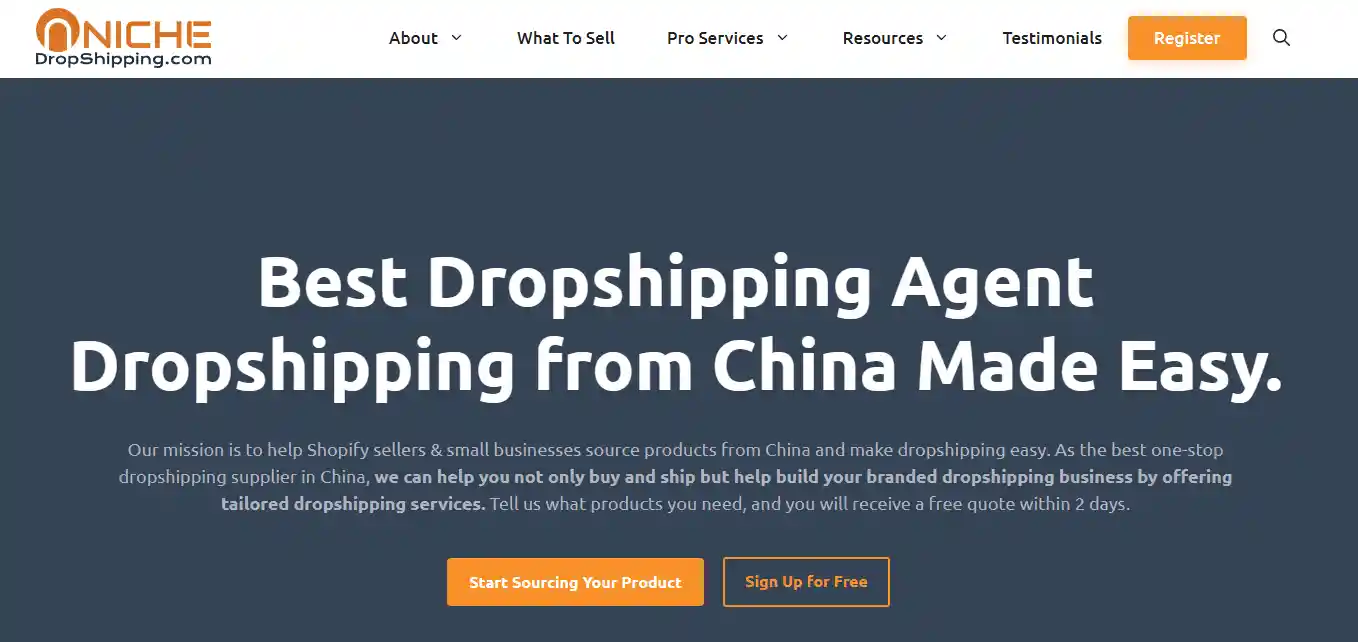
NicheDropshipping is a worldwide dropshipping supply chain company that serves clients from all over the world.
They specialize in electronics, home goods and lifestyle products. They also perform quality inspections prior to shipping so you can uphold product standards.
Features:
- Private label product sourcing.
- Worldwide shipping options.
- Integration with multiple e-commerce platforms.
AliExpress

AliExpress is a large online retail store that sells private label dropshipping products. You can source almost any product and sell it under your brand.
Suppliers accept bulk orders and offer branding customization, giving you freedom to scale.
Features:
- Large variety of products.
- Easy to test new products.
- Direct shipping to customers globally.
DR.HC Cosmetics
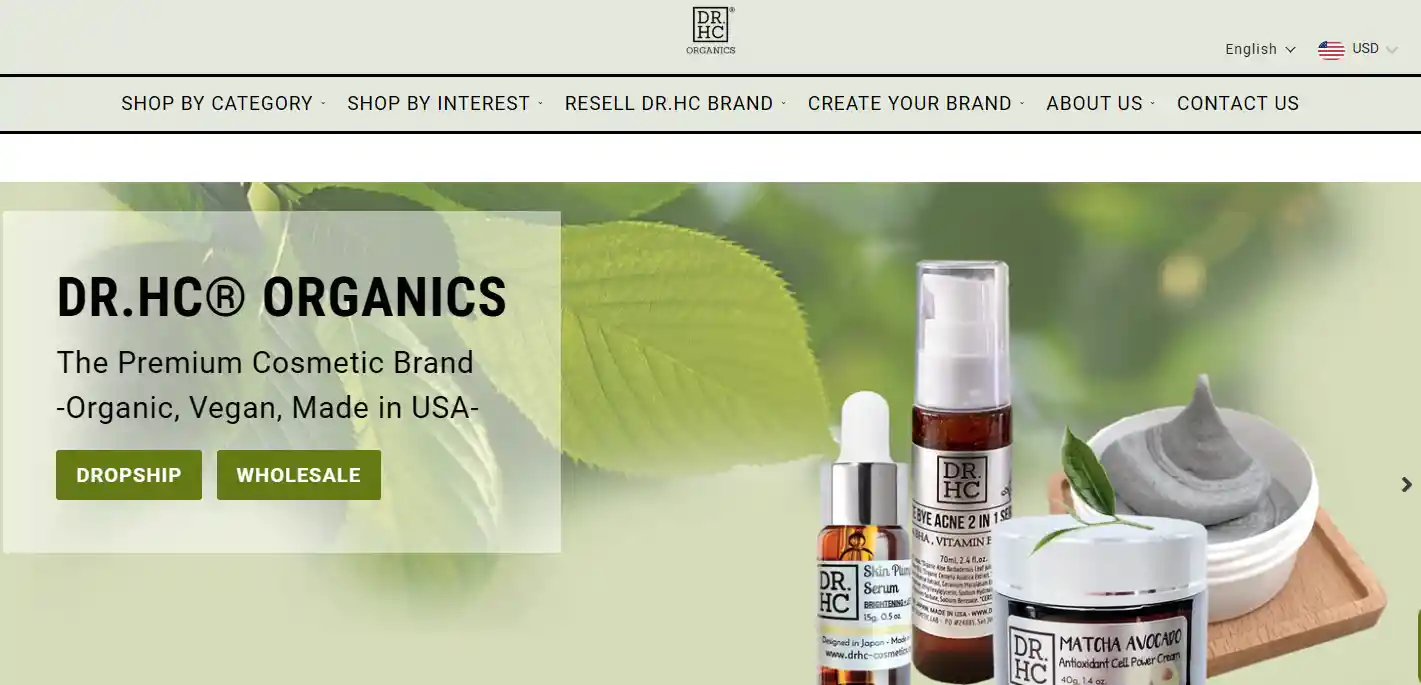
DR.HC Cosmetics is a private label dropshipping skincare and beauty company. They supply creams, serums and makeup products to online stores.
Their formulas meet global standard specifications and provide lasting quality to your customers.
Features:
- Custom brand labels.
- Variety of cosmetic products.
- Support for dropshipping logistics.
Alibaba
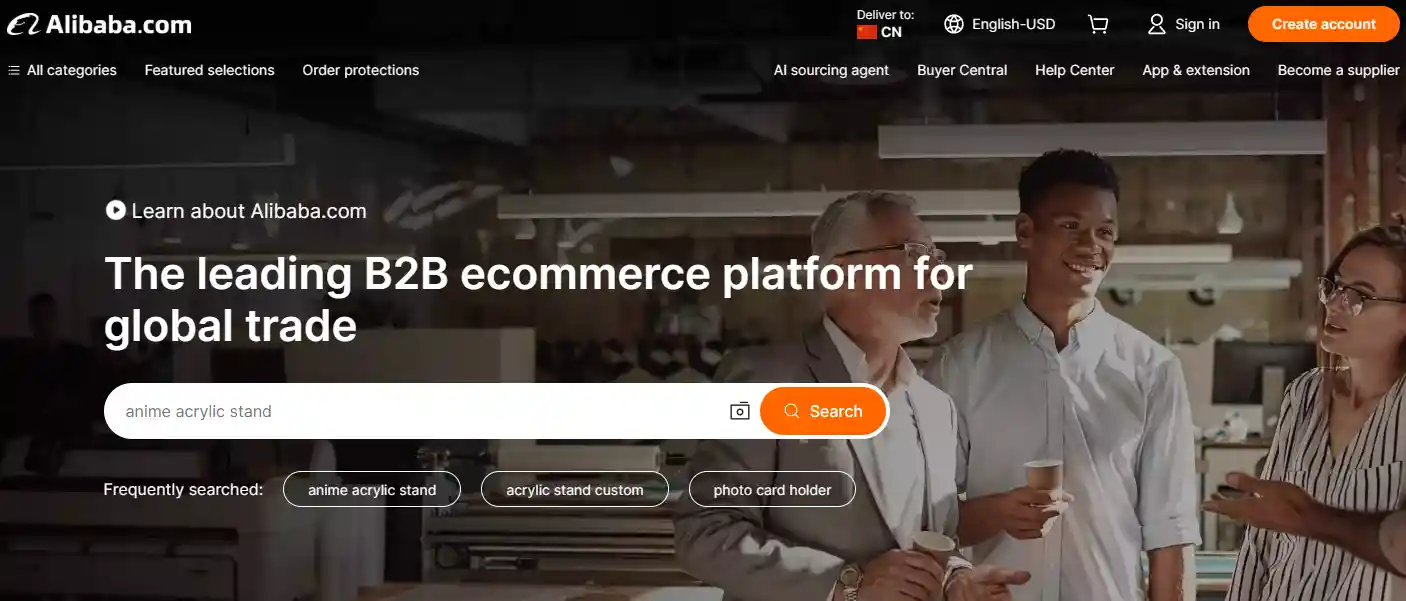
Alibaba is a worldwide supplier hub where you can find private label manufacturers. You can make products in bulk and sell under your own brand.
Many producers also offer product design services to assist you in creating new products.
Features:
- Access to manufacturers worldwide.
- Custom product orders possible.
- Cost-effective bulk pricing.
Bondi Beach Tea
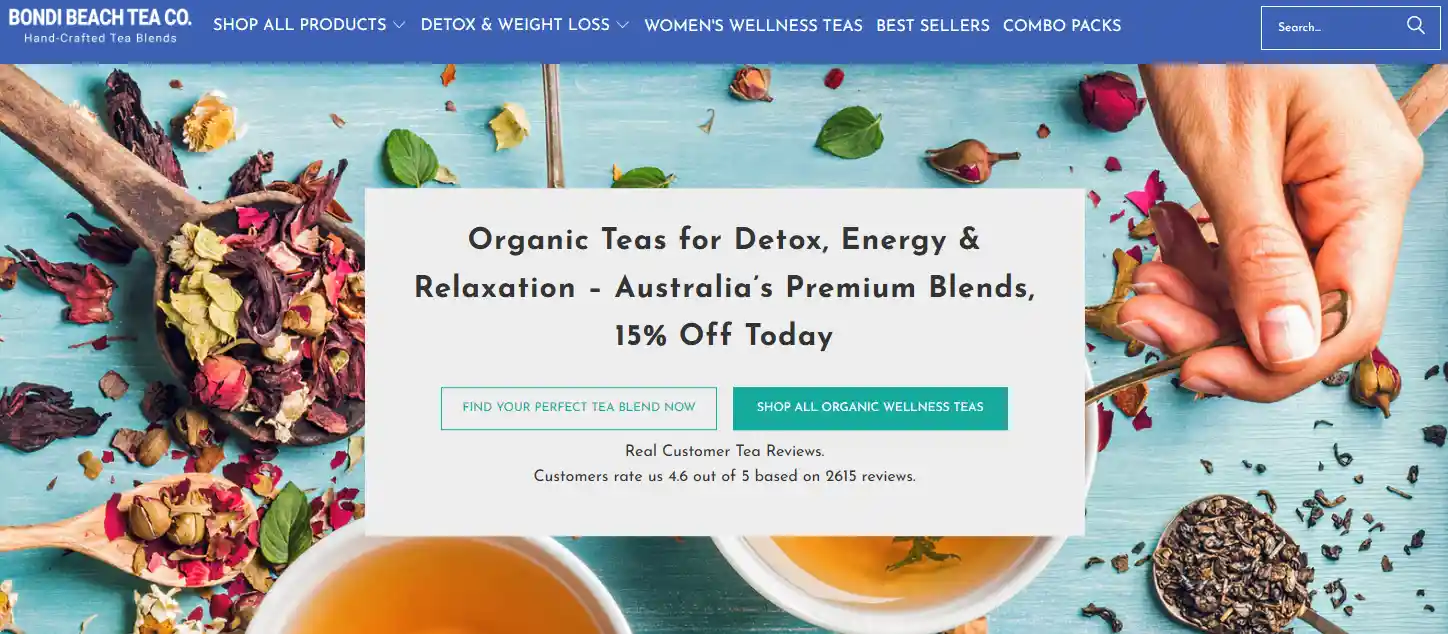
Bondi Beach Tea Co specializes in teas and health drinks. They provide private label options for herbal, green and specialty teas.
They target health-conscious consumers and assist with blending and branding to suit your story.
Features:
- Private label packaging for teas.
- Variety of flavors and blends.
- Shipping directly to customers.
Syncee
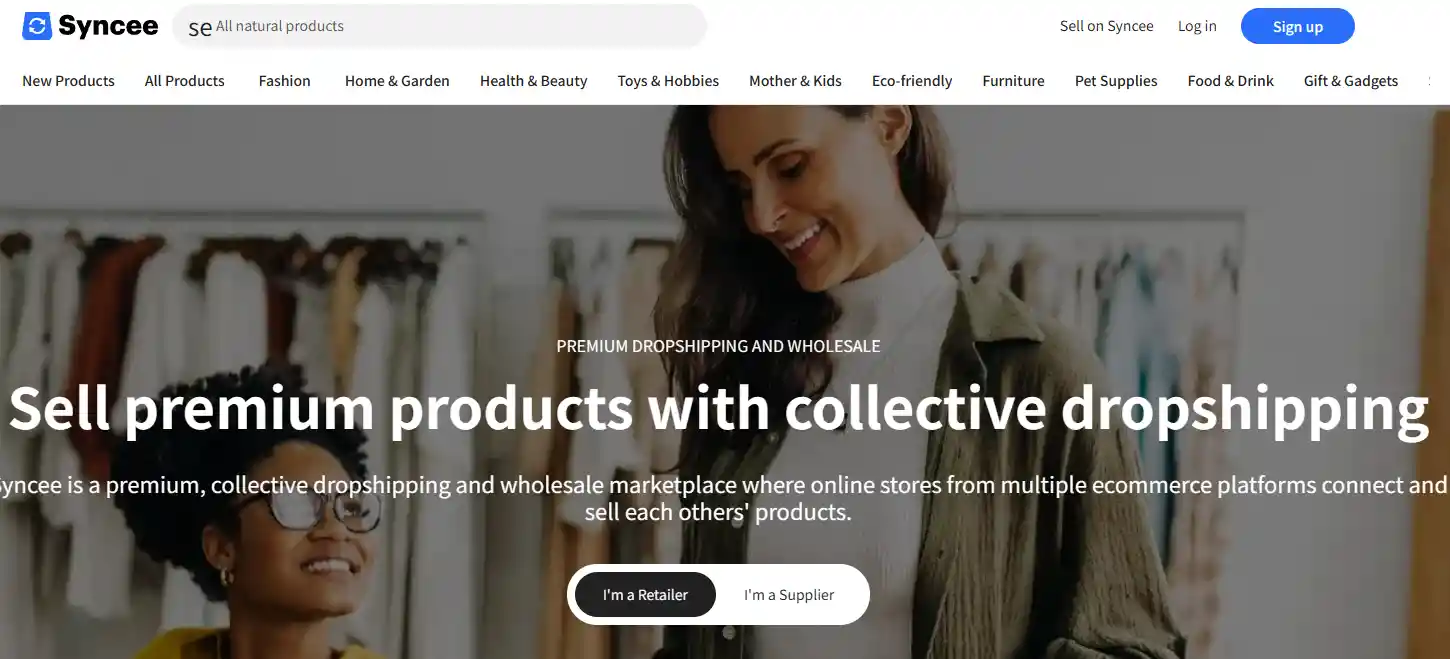
You can find private label suppliers on Syncee, a global dropshipping platform. You can shop in categories ranging from fashion to home goods.
It integrates with online shops without a fuss. It's also widely used by sellers to automate product imports and inventory management. You can easily discover trending products.
Features:
- Verified suppliers around the world.
- Your logo can be printed on products.
- Inventory and orders are automatically synced.
- Supports multiple e-commerce platforms.
Dropified
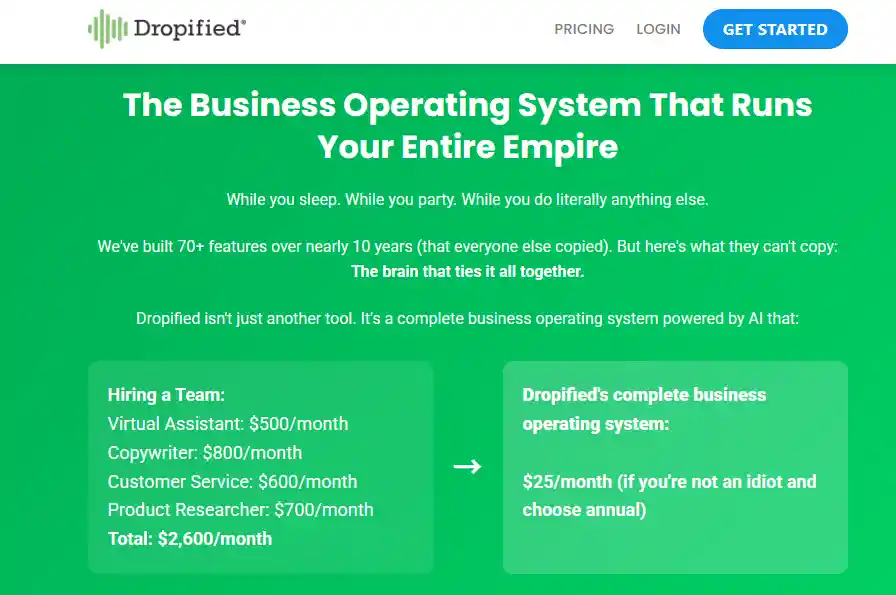
Dropified lets you build private label dropshipping businesses with ease. You can import products from multiple marketplaces and sell under your own name.
The platform also helps track orders and pricing. Many store owners use it to save time on repetitive tasks and to test several suppliers.
Features:
- Automate product imports.
- Orders and pricing update automatically across applications.
- Supports branded packaging.
- Manage multiple stores in one place.
Supliful
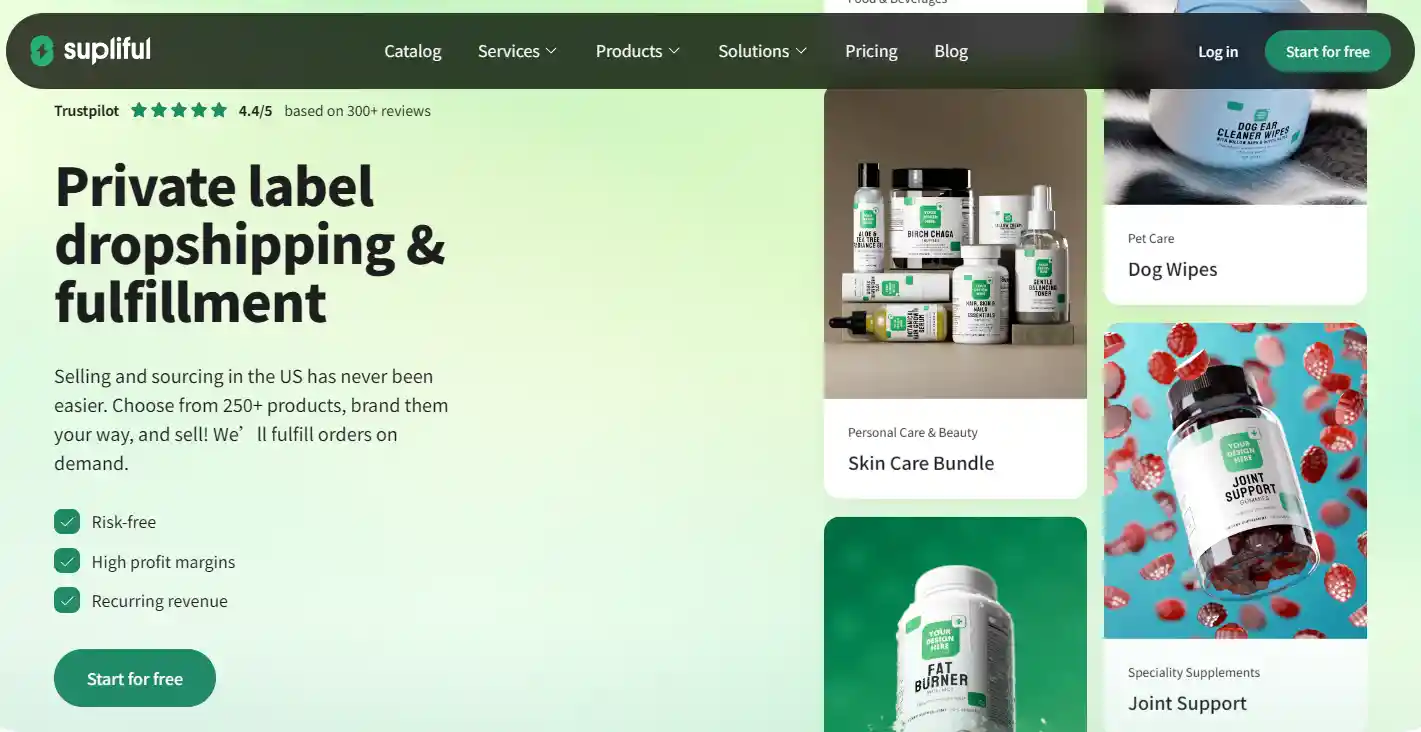
Supliful focuses on private label apparel and accessories. You can sell shirts, sweaters, and other items with your own logo.
They handle printing and fulfillment, making it perfect for fashion or merchandise brands. You can also create limited edition collections.
Features:
- Custom designs or logos are possible.
- They handle printing and shipping.
- Suitable for small or large orders.
- Products can be branded for your store.
BigBuy
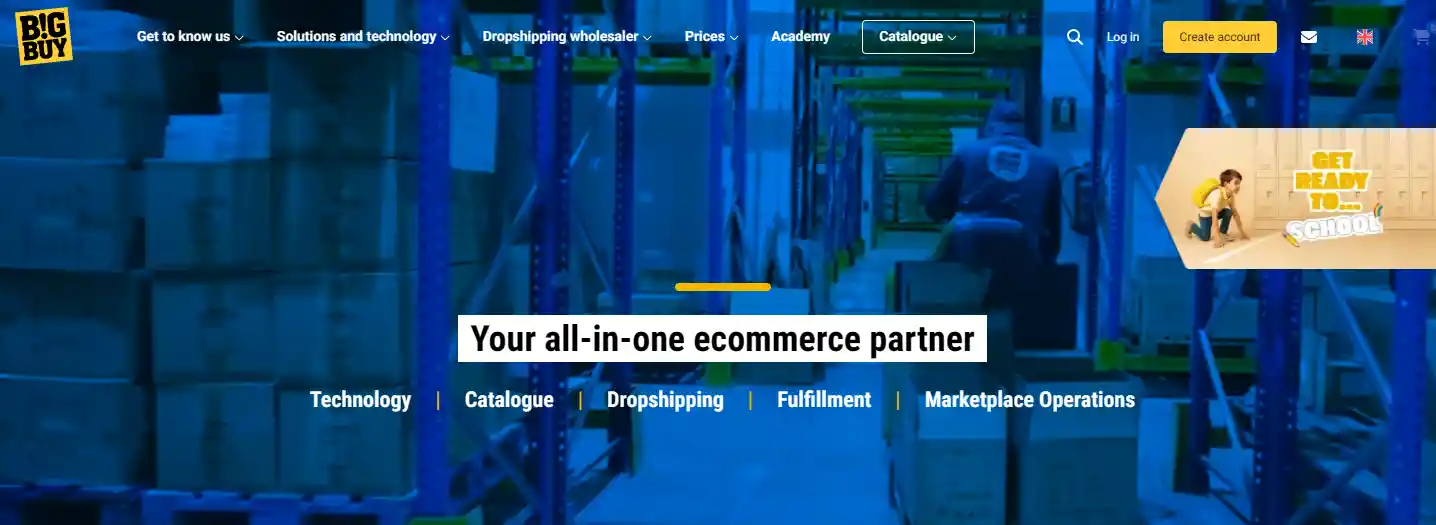
BigBuy is a European dropshipping company offering private label reselling. Products are available in electronics, home goods, beauty, and more.
They provide warehousing and shipping throughout Europe, helping sellers manage multiple categories from one platform. You can also package products under your brand.
Features:
- Market products under your brand.
- Warehousing and fulfillment included.
- Multiple product categories available.
Wonnda
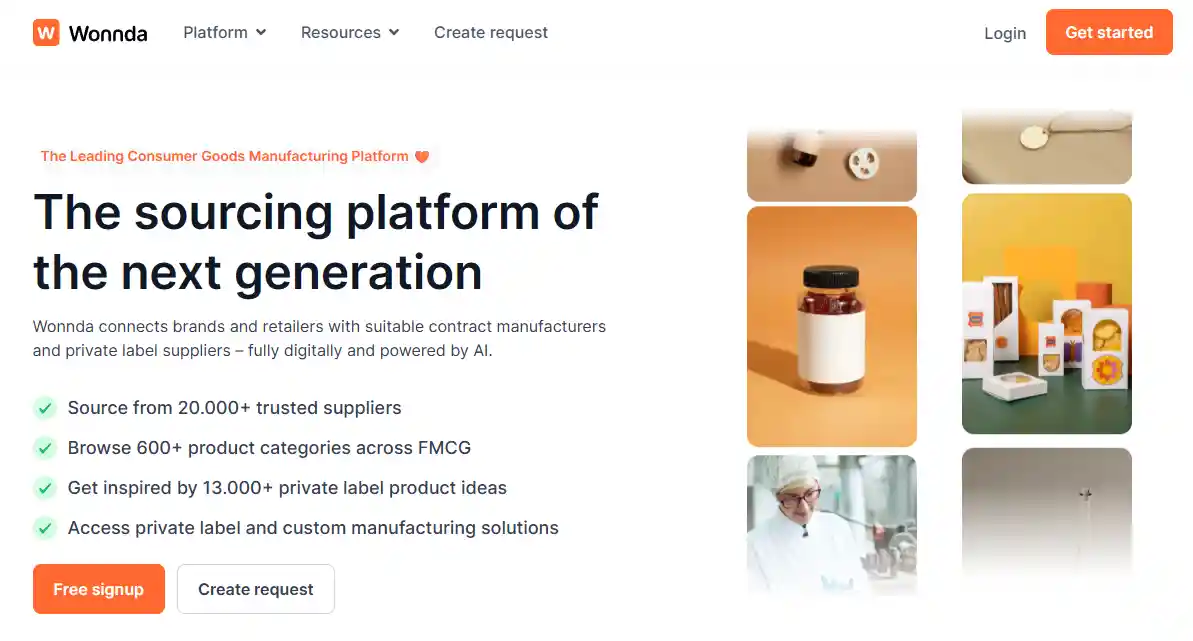
Wonnda specializes in beauty and wellness private label products. You can sell branded skincare, supplements, and health items.
They offer labeling and packaging services. Many entrepreneurs use it to start small, targeted product lines. Subscription packages for customers can also be customized.
Features:
- Health and beauty products can be branded.
- Packaging is customizable.
- Customers receive orders directly.
- Small or bulk orders accepted.
CJDropshipping
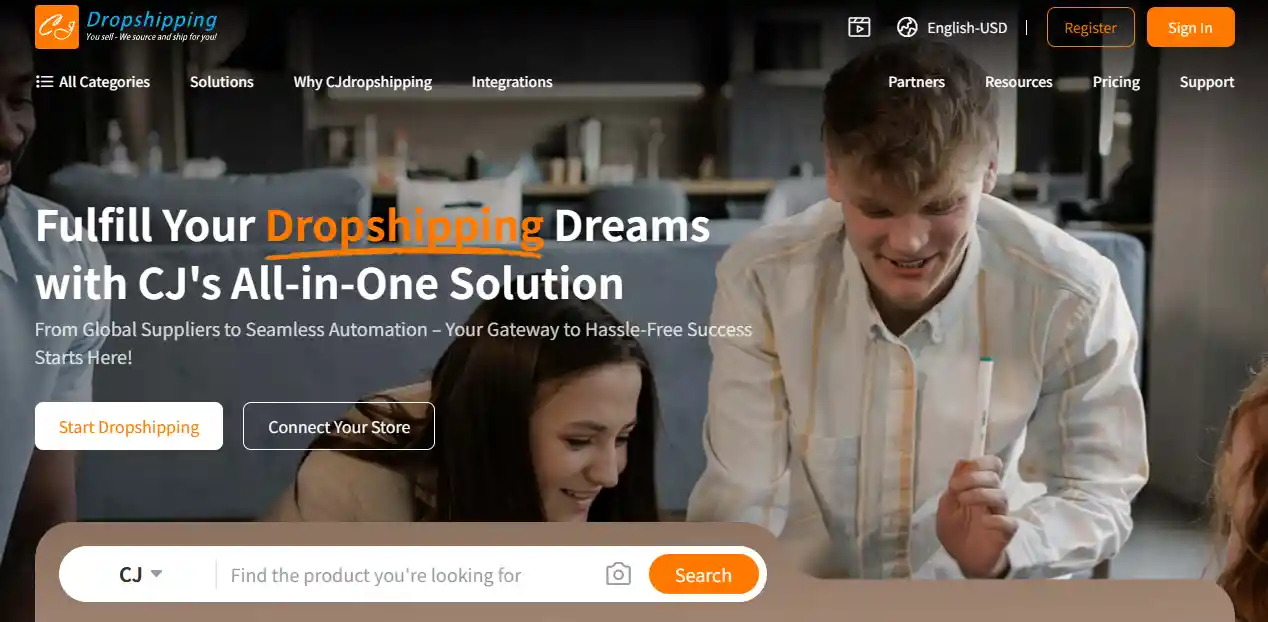
CJDropshipping provides private label products across multiple niches. You can sell electronics, fashion, and home goods under your brand.
They handle sourcing, warehousing, and shipping. Product videos for marketing are also available.
Features:
- Put your logo on products.
- Warehousing and shipping handled.
- Product sourcing support included.
- Marketing materials such as videos provided.
AutoDS
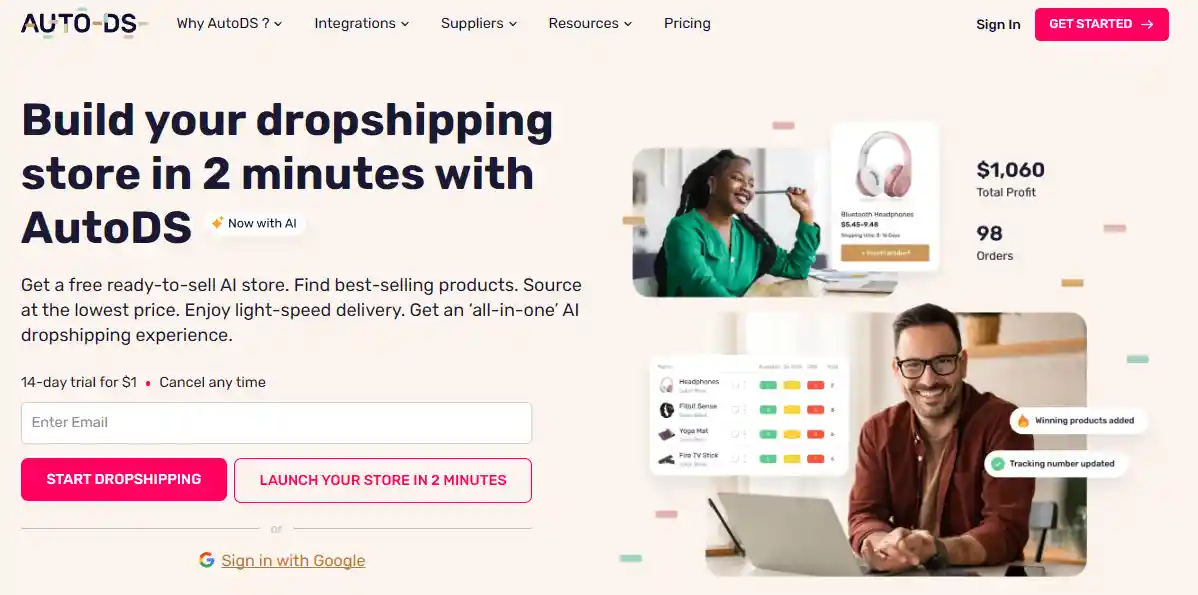
AutoDS is a private label dropshipping automation tool. You can import products from various platforms and manage them in one dashboard.
It helps with pricing, stock updates, and order tracking, saving time and preventing mistakes.
Features:
- Price and stock changes automated.
- Orders synced automatically.
- Supports multiple e-commerce stores.
- Offers analytics and product research tools.
Power Body
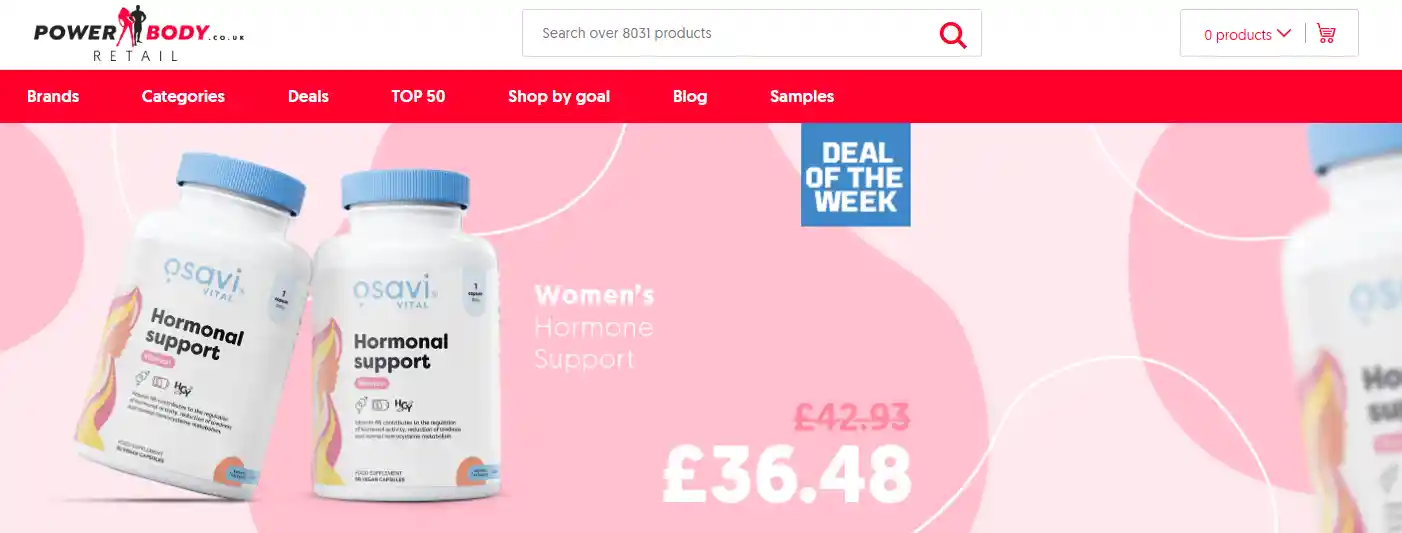
Power Body offers private label health and fitness products. You can sell supplements, protein powders, and wellness items under your brand.
They handle labeling, packaging, and fulfillment. Themed product bundles can also be created.
Features:
- Supplements and wellness products can be branded.
- Packaging options available.
- Orders ship directly to customers.
- Wholesale and small orders accepted.
Art of Where
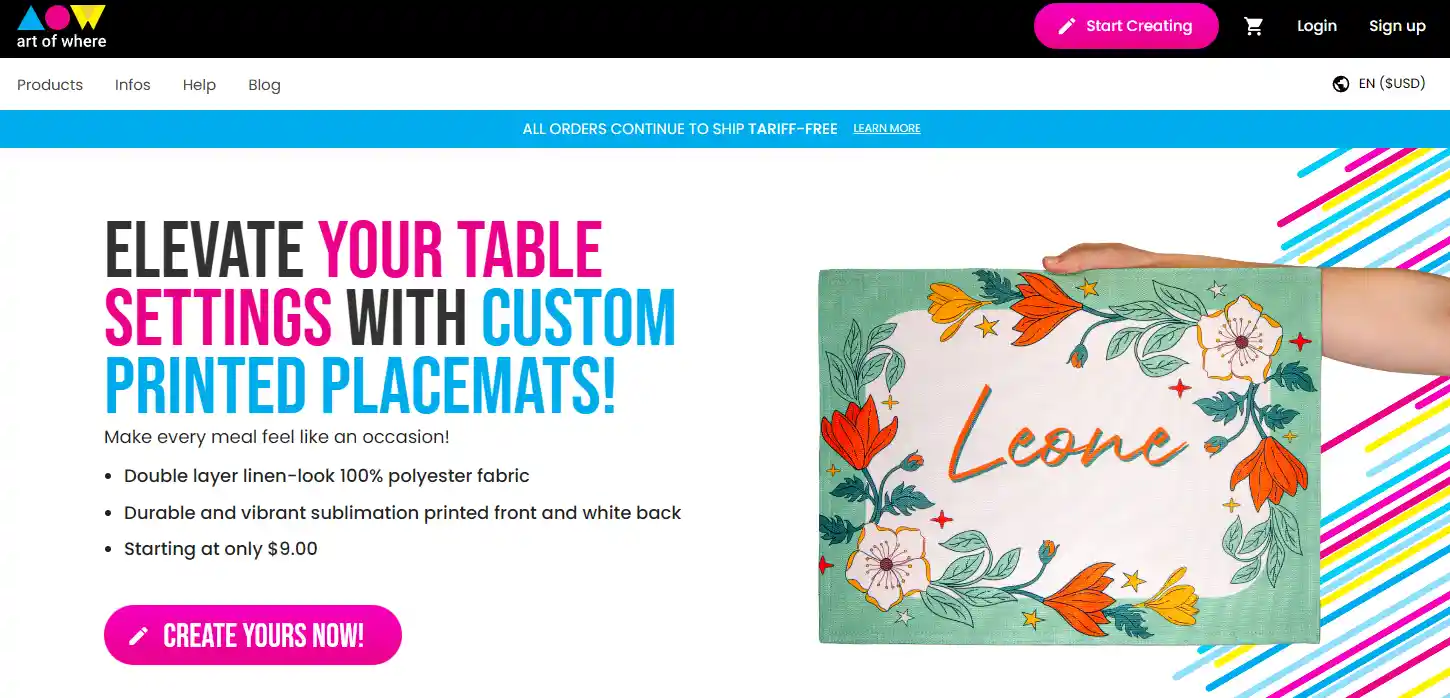
Art of Where specializes in private label art and apparel products. You can sell custom printed clothing, accessories, and home décor under your brand.
They provide printing, cutting, and fulfillment services. Limited edition items can also be produced.
Features:
- Apply your own art to products.
- They handle printing and fulfillment.
- Suitable for clothing and home décor.
- Can produce small or large volumes.
Selfnamed
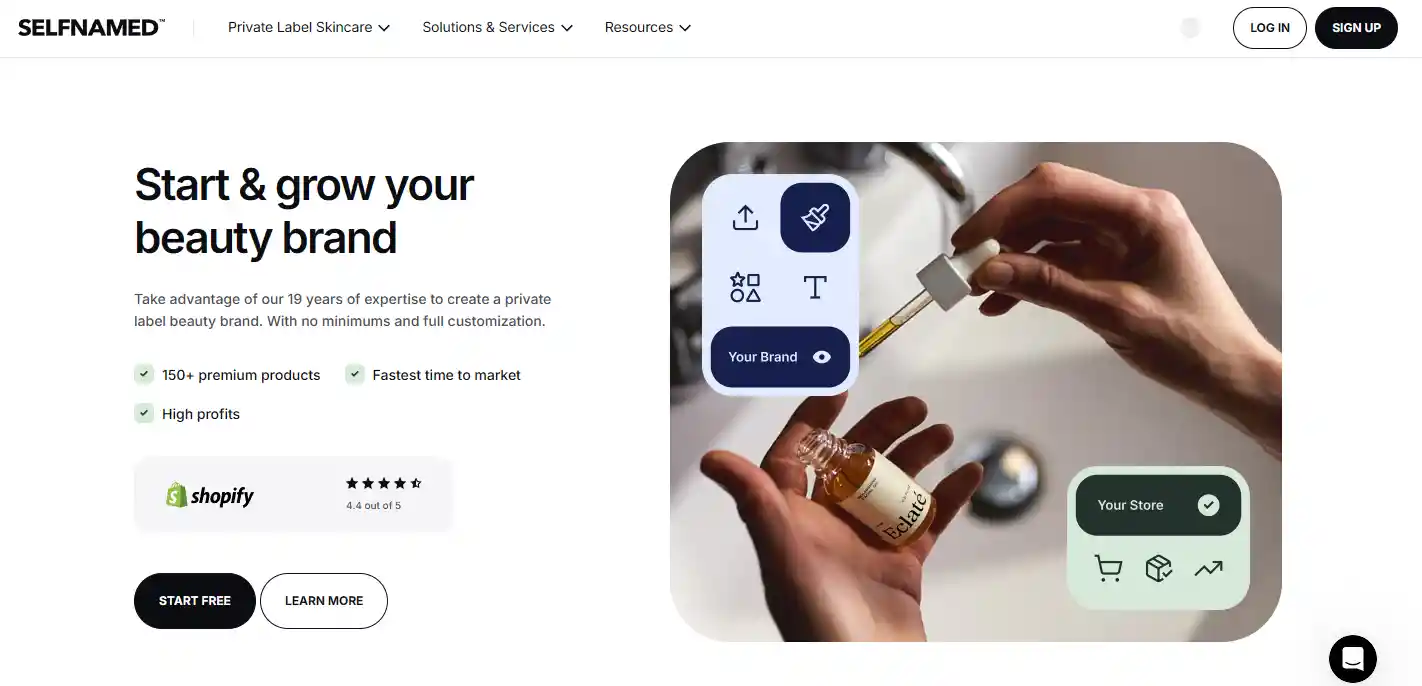
Selfnamed offers private label personal care and cosmetics. You can sell skincare, hair care, and wellness products under your brand.
They provide formulation, labeling, and packaging support. Seasonal or themed collections can also be created.
Features:
- Co-brand personal-care products.
- Packaging and labeling are customizable.
- Goods delivered directly to consumers.
- Formulation guidance provided.
How to Choose a Private Label Supplier
1. Test Product Quality Yourself
Don't assume a supplier's photos show the real thing. Ask for samples and put them to the test. Feel the material, check the finish, and try the product as a customer would.
Small flaws might seem minor, but they affect your brand more than you think. A high-quality product makes your store look professional and keeps customers coming back.
2. Watch How They Communicate
A supplier who answers quickly and clearly saves you a lot of headaches. Try sending a few detailed questions and see how fast and thorough the replies are. Pay attention to:
- Response speed
- Clarity of answers
- Willingness to accommodate custom requests
Suppliers who communicate well usually handle problems better too.
3. Look for Real Customization Options
Private label is all about your brand. Make sure the supplier can:
- Add your logo or label
- Adjust packaging style
- Change small product details
Even subtle changes like color, font, or packaging style make your product stand out. If the supplier can't customize much, your brand might feel generic.
4. Balance Price and Flexibility
Cheap isn't always better. Compare the price, shipping fees, and minimum order quantity (MOQ). High MOQs can tie up cash and slow you down.
Look for a supplier that balances cost with flexibility so you can scale without risking too much money. Smart budgeting early on avoids headaches later.
5. Check Reliability and Track Record
A supplier who delivers late or ships inconsistent quality can ruin your brand. Look at reviews, ask for references, or check their shipping history.
Reliable suppliers handle issues professionally, provide tracking updates, and keep quality consistent. Trust is more important than the lowest price.
Winning Products vs Branding: Which to choose?
Many new sellers face a common decision: should you chase trending products or focus on building a brand? Both approaches can work.
They just have different timelines, risks, and rewards. Winning products can bring fast revenue, but branding creates a foundation you can grow over years.
Understanding the differences helps you plan your actions carefully.
The Winning Product Path
Winning products are items that are trending or solve a specific problem. They often go viral online or meet a current demand.
You can start selling these products with minimal experience, using platforms like AliExpress, CJ, or AutoDS.
Testing multiple products is easy and inexpensive, so you can quickly see what resonates with your audience.
Success with winning products usually depends on ads and social media trends, as your results are tied to marketing campaigns and platform algorithms.
Pros:
- Quick cash flow – You can see results in weeks if a product gains traction.
- Minimal long-term commitment – Testing new items doesn't lock you in.
- Flexible experimentation – Explore different niches and discover what your audience wants.
Cons:
- Short product life cycle – Trends can disappear in months, making some products obsolete quickly.
- Low repeat business – Customers may not return after buying a one-off trending item.
- High competition – Many sellers are chasing the same trends, which drives up ad costs.
Examples:
- Viral TikTok gadgets
- Trending home accessories
- Problem-solving kitchen tools
The Branding Path
Branding focuses on creating a recognizable and trusted presence. You build a niche, usually using private or white label products, which gives you more control over design, packaging, and the overall customer experience.
Growth tends to be slower because building a reputation and loyal customer base takes time, but the foundation you create is much stronger than chasing short-lived trends.
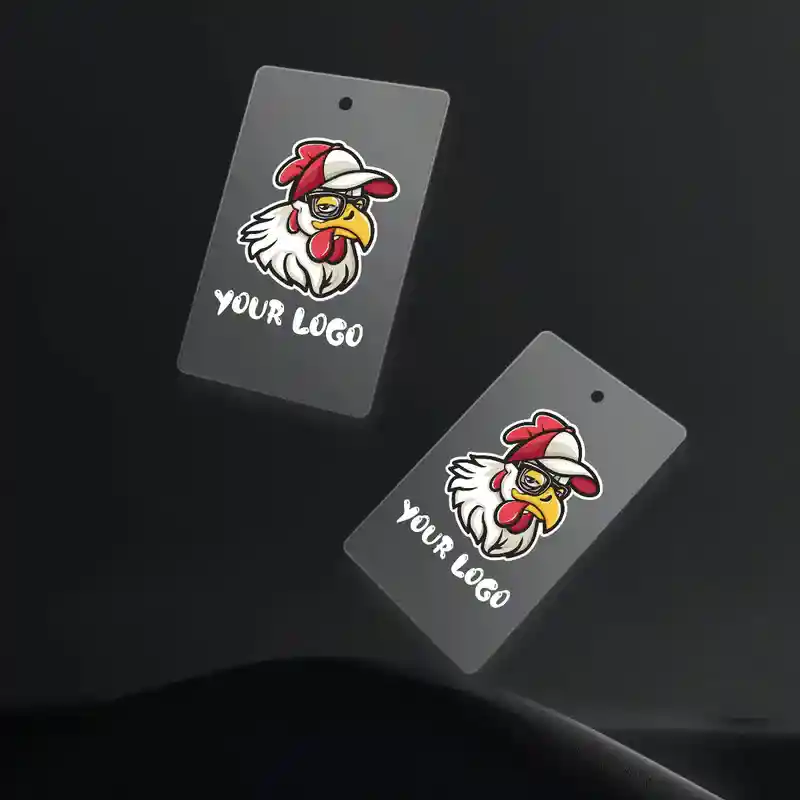
Custom Frosted Hang Tag - Print on Demand Fulfillment - PrintKK
Consistency matters at every step—marketing, packaging, and service should always reflect your brand. A strong brand can endure market shifts and last well beyond the lifespan of any single product.
Pros:
- Customer loyalty – People return because they trust your products and brand.
- Higher margins – Branded products can be priced above generic alternatives.
- Sustainable business model – A strong brand can weather market changes.
- Potential resale value – Established brands can be sold for profit later.
Cons:
- Higher upfront investment – You may need to meet MOQ, design packaging, and invest in marketing.
- Slower ROI – Profits may take months to appear.
- Requires patience – Mistakes can affect reputation and sales.
Examples:
- Supplements from suppliers like Supliful or Makers Nutrition
- Print-on-demand fashion brands (Printful, Printify)
- Specialty coffee or tea brands with custom packaging
Key Differences at a Glance
Feature | Winning Products | Branding |
Timeline | Fast, often weeks | Slow, months or years |
Cost | Low upfront, small orders | Higher upfront for MOQ, packaging, branding |
Risk | High product failure rate | Financial risk due to initial investment |
Reward | Short-term profits | Long-term equity and loyal customers |
Observation: Winning products generate immediate cash. Branding builds long-term business value that can scale.
How to Decide Which Path is Right for You
Ask yourself:
- Do you want fast cash flow or long-term stability?
- Can you cover MOQ, branding, and packaging costs?
- Are you better at marketing campaigns or building a brand identity?
Hybrid Strategy: Start with winning products. Reinvest profits into branding once you find what sells. This approach lets you test demand, reduce risk, and build a long-term business gradually.
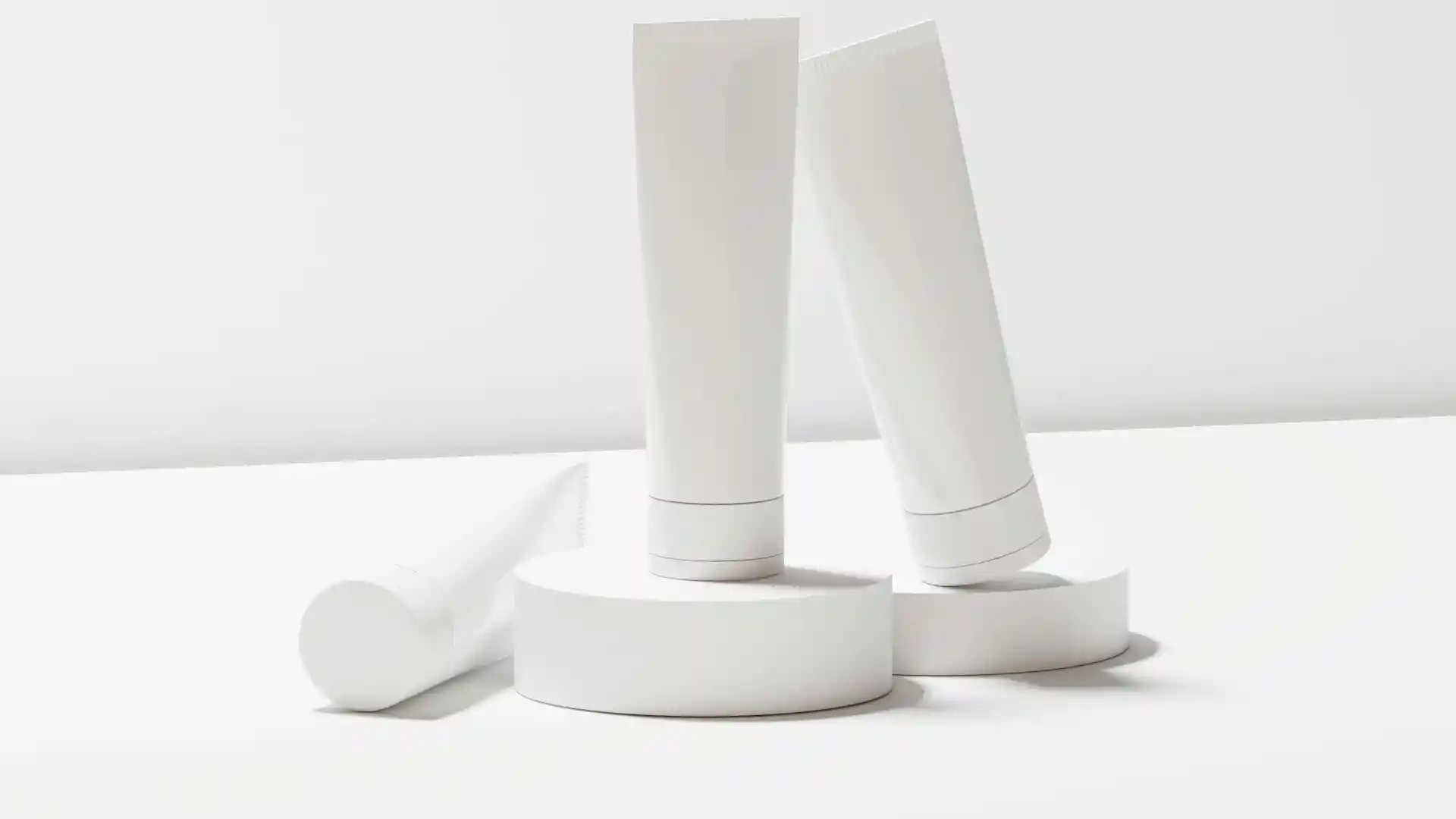
Key Strategies to Avoid Failing in Private Label Dropshipping
Starting a private label dropshipping business can generate revenue for you, but there are some things to keep in mind.
You need tactics that protect your brand, contain costs, and ensure satisfied customers. By following these steps you can improve your chances of success and reduce common mistakes.
Choose and Vet Reliable Suppliers
Your vendor is the bedrock of your business. Find someone who has a good reputation, is easy to get along with, and has happy clients. Look for what their MOQs are and what they can handle in terms of production.
To make this more practical:
- Order samples – Verify size, color, print, and durability to avoid surprises.
- Bring in audits or rating systems – Third-party checks add another layer of confidence.
- Sign contracts – Define who does what and protect your interests.
Also Protect Your Brand With Legal and Financial Preparation
Protect your business with legal protections. Be sure to register your trademarks so you can protect your IP. Product liability insurance or general business insurance covers claims and damages.
Key steps include:
- Put in place transparent contract terms – Make roles, quality, and returns clear.
- Keep counterfeits and infringers at bay – Even minor infringement can damage your name.
- Cover your bases – Your money needs protection against unplanned events.
Keep in Control of Stock, Postage, and Customers
Plan logistics carefully. Anticipate possible hiccups such as delays, stockouts, and returns, and develop procedures to handle them. Clearly tell your customers about delivery times and your return policy.
Practical tips:
- Keep track of inventory – Avoid running out or overstocking.
- Customer service scripts – Guide responses for common questions.
- Prepare for returns and shipping – Make it easy for customers and reduce complaints.
Test, Monitor, and Refine Your Products
Begin small to test the market before investing heavily. Keep a close eye on sales trends, returns, and customer feedback so you can detect problems early.
Actions to consider:
- Start with low-risk testing – Small batches reduce risk and give real feedback.
- Track key metrics – Sales, return rates, and profit margins reveal what works.
- Refine based on data – Adjust suppliers, products, or marketing strategies as needed.
Expert Tips
Starting a private label dropshipping business can be challenging, but the right strategies make it manageable. You need to choose reliable suppliers, protect your brand, manage inventory, and monitor your products.
Test your ideas, learn from feedback, and adjust as needed. With careful planning and attention, you can create a sustainable business that grows over time. Stay patient and keep improving.
FAQs
Is white labeling profitable?
White labeling can be a good way to increase profits. By selling products under your own brand, you can set higher prices, build customer loyalty, and reduce competition compared to generic items.
What is the difference between private label vs white label dropshipping?
Private label products are designed or customized exclusively for your brand. White label items are pre-made products that multiple sellers can brand. The main difference is uniqueness versus shared branding options.
How can I verify a white label supplier's reliability?
To ensure a supplier is trustworthy, check reviews from other businesses, ask for product samples, confirm delivery times, and make sure their communication is clear and consistent before placing larger orders.
What legal compliance is required for white label products?
You must follow local safety, labeling, and import regulations. Certain categories may need certifications or testing. Always confirm rules in your region to prevent legal issues and maintain product credibility.










 Global Shipping
Global Shipping





























